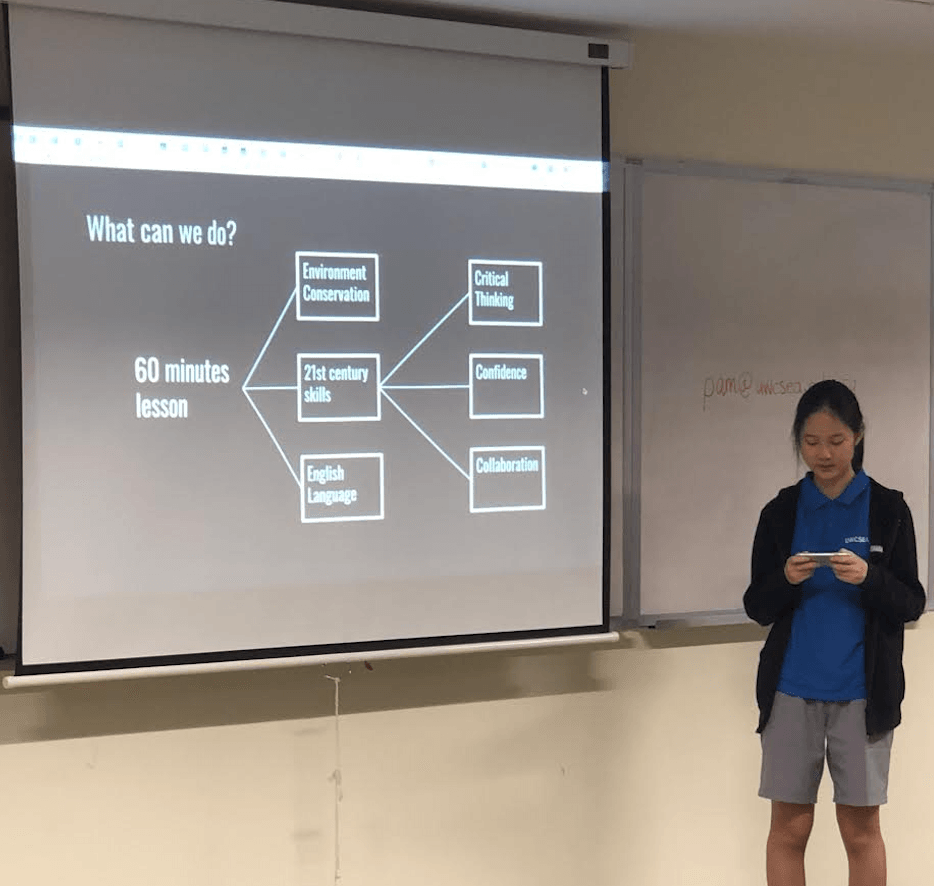Me and Doris, presenting the nature of Bintan
What did you learn about “living in Bintan” by interviewing different stakeholders using different compass perspectives?
I learnt about how the local people in Bintan live and what are their problems. The detail information is a lot, I wrote about 10 pages in our booklet. I mainly just know about pengudang, and got a little information about other village when listening to other presentations.
To sum up the information: Most people live on fishing, but in future there will be more people work in hotel. And they need school to teach them the ability they need to work in hotels. The fishing become harder because ocean pollution and overfishing, the trash on land has no where to go and they can only burn or burry. They live in peace, they are proud of their cultural variety. Mainly Malay culture. The government helped them a lot, including paying for health. The stakeholders hold similar perspectives.
Why was it important to go though this process?
Using different compass perspectives forced us to consider the situation in a more overall sense. By connecting information from difference aspects, we transform our understanding from “what” to “why”. Only then we can find actual solution.
It’s better to go to the local village in person instead of just video call or other methods:
- Now we know the local people in person so we are more motivated in helping them.
- Everyone is bias.We want to be less bias therefore we listen to many people instead of just one or two.
- We know lot more detail in terms of information. And we are able to feel and make sense about those.
- I discover what aspect do I really care about and interested in. I won’t be able to if not this process.
- prepare us to do this kind of service in future when we are on our own.
When presenting your compass perspective, what did you do well? What could you improve?
|
Do well |
Could improve |
| Content |
Lot’s of information. Trend prediction is to some extend valid. Include many aspects of nature. |
The information should be clearer and more concise. |
| Delivery |
We talked about all of it. We both talk. The volume is okay, people can hear. |
Try to be less nervous. Try to express ideas more clearly. |
